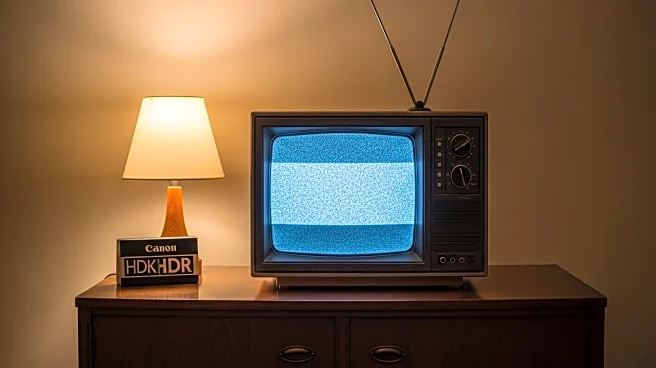What's Happening?
During the cold open of 'Saturday Night Live's' 51st season, President Trump made a surprise appearance, portrayed by James Austin Johnson, to issue a warning to the show. Trump expressed his concern over the show's portrayal of him, stating he was 'keeping an eye' on 'SNL' to ensure they don't 'do anything too mean.' He humorously referenced the show's recent cast changes and hinted at potential consequences if the show crossed the line, mentioning his 'attack dog at the FCC,' Brendan Carr. The segment ended with Trump reminding the audience that 'Daddy's watching.'
Why It's Important?
The interaction highlights the ongoing tension between President Trump and media outlets, particularly those known for satirical content. 'Saturday Night Live' has a long history of political satire, often targeting sitting presidents. Trump's comments underscore the delicate balance between freedom of expression and political sensitivity. The mention of the FCC suggests potential regulatory implications, which could impact how media organizations approach political satire. This development is significant for media companies, comedians, and political commentators who navigate the boundaries of satire and criticism.
What's Next?
The episode may prompt discussions within media circles about the limits of political satire and the role of regulatory bodies like the FCC in overseeing broadcast content. Stakeholders, including media companies and advocacy groups, might respond to Trump's comments, defending the importance of satire in political discourse. Additionally, 'SNL' may continue to address political figures in its sketches, potentially leading to further commentary from Trump or other political leaders.
Beyond the Headlines
The incident raises questions about the influence of political figures on media content and the potential chilling effect on free speech. It also highlights the cultural role of satire in holding public figures accountable and sparking public debate. The ongoing interaction between Trump and 'SNL' reflects broader societal discussions about media bias, political polarization, and the power dynamics between government and media.










